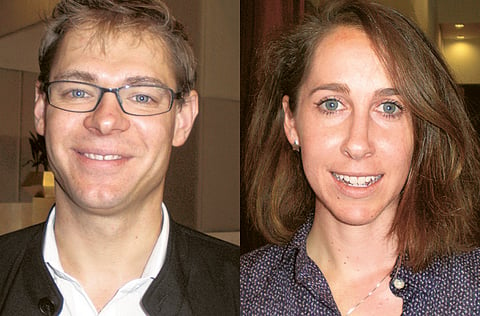UAE effectively uses wealth for green cause
Absence of resource curse an advantage

Abu Dhabi: The absence of a resource curse (paradox of plenty) is helping the UAE and other Gulf states to utilise their wealth effectively against climate change, according to a US researcher.
The term resource curse refers to the observation that nations with rich endowments of natural resources such as oil, metals, timber, often dramatically under-perform economically relative to what one would expect.
In oil-rich countries like Nigeria, it happens due to corruption, violence and unrest, said Piper Star Foster, Executive Director of Sopris Foundation in Colorado. Like the many green initiatives by the UAE government, which is hosting the headquarters of Irena, International Renewable Energy Agency and building Masdar City — the zero carbon city, the rulers in the region can easily take similar steps, utilising the wealth in a stable political environment, she said.
Foster was a speaker at a seminar on Climate Change and Energy Policy in the Arab region, organised in the capital, by the German Federal Foreign Office in cooperation with Ecologic Institute in Berlin, Brussels, Vienna and Washington DC. She spoke to Gulf News on the sidelines of the event.
Diversification
"Since a ruling family can take the decision and implement it, the huge amount of capital available in the Gulf region can easily be used for diversification of economy and energy sources [which the UAE has already been doing]," Foster said.
Security
The absence of a resource curse can be utilised by making the society more secure, she said.
"Diversification of economy and energy security are vital in that direction," she explained.
While the total green house gas emissions of the Arab countries account for less than 5 per cent of the global total, the per capita emissions in some Arab countries are among the highest anywhere in the world, said Soren Haffer of Ecologic Institute.
Interaction averts stereotype
Some of the Westerners think that Arabs, being unaware of climate change impacts, are wasting the resources available to them on huge government subsidies, whereas some of the Arabs think that the life is green in some parts of the West like Germany, but neither version is true, the US-German researcher said.
"The interaction with Arab journalists in Abu Dhabi helped me to understand the region better," Piper Star Foster, Executive Director of Sopris Foundation in Colorado, said.
A recent survey conducted by Arab Environment Fund revealed that people in the Arab region are aware of the impacts of climate change and the fact that it is man-made, "It contradicts the stereotype on Arabs," she said.
"Since I am working in Germany, although there are many green noteworthy projects, I know the life is not so ‘green' there as others think," Foster said.
Consumerism [which also contributes to high carbon foot print]is rampant everywhere in the world and the West and Arab region are not exceptions, she said.
"I have heard some of the Arabs being concerned about westernisation of their societies. At the same time both the West and Arab societies can together address ‘consumerism' as a common problem," Foster said.
Sign up for the Daily Briefing
Get the latest news and updates straight to your inbox



